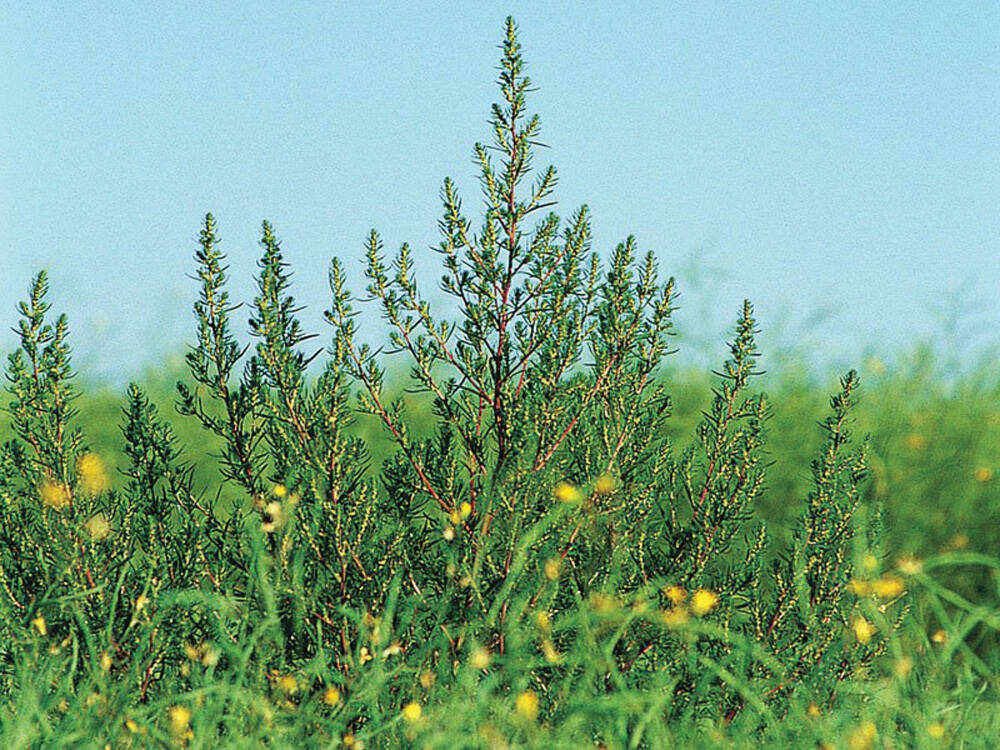Any effort by drought-stricken Russia to restrict grain exports is likely to provoke a similar move by neighboring Ukraine, leaving markets bereft of supply from two major Black Sea producers at a time when dry weather has slashed grain supply from India to Indiana.
Importers moved swiftly to secure supply as the harvest outlook took a turn for the worse in late July in a drought that drew parallels with 2010, when Russia shocked markets with a ban on exports when the scale of losses became clear.
Wheat has followed corn prices higher this year in a fierce rally driven largely by drought in the U.S. farm belt, and drought in Black Sea exporting countries has added to strain on wheat supplies, which are needed as a substitute feed to make up for lost U.S. corn supplies.
Read Also

FMC Canada unveils 2026 crop protection roster
FMC Canada’s crop protection lineup for 2026 will include four products marketed for control of kochia.
Wheat buyers will not be taken by surprise as they were in 2010 year, but could still be left scrambling to find export availability if expectations of a ban materialize, said Bill Tierney, chief economist with Chicago-based AgResource Co.
"Under that scenario, wheat could go to a $1 or $2 premium over corn," Tierney said (all figures US$).
"Most of the rally that we’ve seen in wheat is due overwhelming to corn but now there’s a realization that wheat fundamentals have gotten dramatically tighter and exportable supplies may be hard to come by."
The governments of both Russia and Ukraine have tried to reassure markets that there will be no repeat in particular of Russia’s snap decision that left buyers short of supplies and contributed to a spike in food prices, which set off unrest around the world.
Nothing left by November
Mindful of damage to Russia’s market reputation from the 2010 ban, Russia’s Deputy Prime Minister Arkady Dvorkovich, a liberal on trade issues who helped guide Russia to accession to the World Trade Organization, has pointed to protective export tariffs as a possible option, though only after the end of the 2012 calendar year.
But traders, who are exporting grain at a pace that appears to outstrip government expectations, suspect that the threat of food inflation and potential imports to cover short domestic supplies, may force the government’s hand resulting in swifter, strict export limits.
Russia’s government is expecting the harvest to decline by about 20 per cent to 75-80 million tonnes this year, of which about 45 million tonnes would be wheat.
It has estimated Russia’s exportable grain surplus at about 10-12 million tonnes — a forecast seen by traders as an informal cap on export.
"By mid-November there will be nothing left to export," one exporter of Russian grain said.
Stocks at Russian agricultural enterprises were at a six-year low as of Aug. 1, partly because they were heavily depleted by last season’s record exports of 28 million tonnes, and Russia needs around 70 million tonnes to meet domestic demand.
Harvest forecasts may see another round of downgrades, too. The effect of drought Siberian producers, key to domestic supply, will become clear in weeks.
In its monthly grains report on Thursday, French analyst Strategie Grains slashed its forecast for this year’s Russian wheat crop by 6.3 million tonnes to 41.6 million tonnes, and cut its outlook for 2012-13 Russian wheat exports by four million tonnes, to just six million tonnes.
President Vladimir Putin, who takes personal responsibility for all major economic decisions, has so far refrained from comment on the harvest but is likely to make a final ruling on whether to impose export restrictions, as he did in 2010.
"October will be our last full month of exports," another exporter of Russian grain said. "I think at the end of October, our very top comrade is going to come out and say the harvest was not so good."
Any export limits in neighbouring Russia would cause a sharp rise in global wheat prices and Ukraine would face a jump in demand from consumers of Black Sea grains which could not be covered by existing stocks.
Ukraine, whose 2012 wheat harvest fell to 16.3 million tonnes from 22.3 million last year, says it has enough grain to meet domestic needs and could export up to 5.0 million tonnes in the 2012/13 season.
Ukraine to hold out
Even as Russian exports accelerated, Agriculture Minister Mykola Prysyazhnyuk said Ukraine had no grounds to ban or limit wheat exports in the 2012-13 season.
"We still have nothing to worry about. We see wheat exports at five million tonnes and we constantly monitor the situation with prices," Prysyazhnyuk told Reuters.
"We have slow exports and see no reason for limits."
But a large foreign trader in Kiev said the government’s ability to maintain that position depended largely on Russia’s actions, a large foreign trader in Kiev said.
"If Russia imposes export limits, it will force our authorities to consider similar measures," he said.
While Russia is seen as likely to impose restrictions of some kind from November despite assurances that the government will try to hold out until the end of the year, Ukraine is likely to wait longer.
The ruling Party of the Regions hopes to return a majority in an October poll, a prospect which could be complicated if farmers in the largely agrarian state are shut off from lucrative export markets.
"Nothing will happen until the parliamentary elections in October. Any decision could take place no earlier than January," the foreign trader said.
Once Russia formally enters the WTO on Aug. 23, both countries will be members of the international trade body, which could serve as a restraining influence if Moscow and Kiev come under pressure from high exports and inflationary threats.
But analysts say Ukraine could impose export quotas as it did in the 2007-08 and 2010-11 seasons without falling afoul of the WTO.
In Moscow, however, interpretations of WTO restrictions appear to differ even within the government, but a sliding scale of tariffs appears to be a likely option.
"There are no meaningful restrictions on Russia or any other country under the WTO preventing an exporter from imposing export taxes, export quota or embargoes, claiming its necessary for food security," Tierney said.
— Polina Devitt and Pavel Polityuk are Reuters correspondents in Moscow and Kiev, respectively. Additional reporting for Reuters by Sarah McFarlane, Valerie Parent and Gus Trompiz in London; additional reporting and writing by Melissa Akin.














